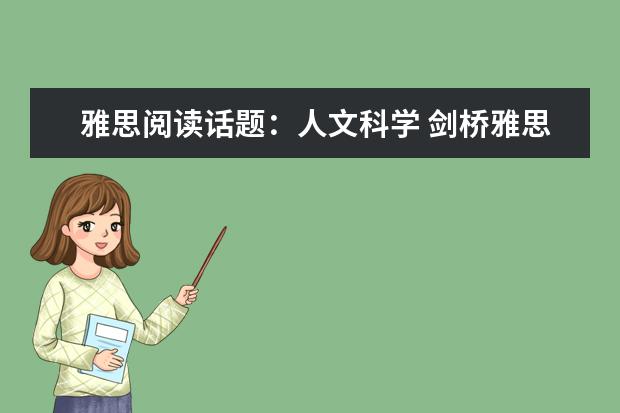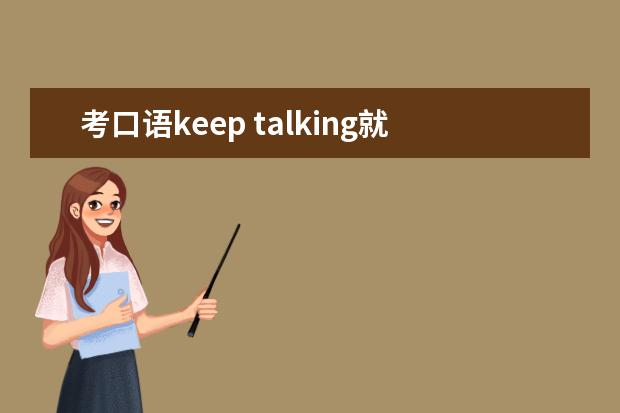Section 3: Question 28-40
You should spend about 20 minutes on Questions 28-40 .
GT Reading Sample: Talking Point
Read the text below and answer Questions 28- 40 .
TALKING POINT
Learning a second language fuels children’s intelligence and makes their job prospects brighter. But the fact is, in New Zealand, as in many other English-speaking countries, speakers of two or more languages are in the minority. Eighty-four percent of New Zealanders are monolingual (speakers of only one language). This leaves a *all number who claim to speak two or more languages – a *all percentage of whom were born in New Zealand.
No matter how proud people are of their cultural roots, to speak anything other than English is a marker of difference here. That’s why eight-year-old Tiffany Dvorak no longer wishes to speak her mother-tongue, German, and eight-year-old Ani Powell is embarrassed when people comment on the fact that she is able to speak Maori *. As Joanne Powell, Ani’s mother, points out: ‘In Europe, it’s not unusual for kids to be bilingual. But, if you speak another language to your children in New Zealand, there are some people who think that you are not helping them to become a member of society.’
But in fact, the general agreement among experts is that learning a second language is good for children. Experts believe that bilinguals – people who speak two languages – have a clear learning advantage over their monolingual schoolmates. This depends on how much of each language they can speak, not on which language is used, so it doesn’t matter whether they are learning Maori or German or Chinese or any other language.
Cathie Elder, a professor of Language Teaching and Learning at Auckland University, says: ‘A lot of studies have shown that children who speak more than one language sometimes learn one language more slowly, but in the end, they do as well as their monolingual schoolmates, and often better, in other subjects. The view is that there is an improvement in general intelligence from the effort of learning another language.’
Dr Brigitte Halford, a professor of linguistics at Freiburg University in Germany, agrees. ‘Bilinguals tend to use language better as a whole,’ she says. They also display greater creativity and problem-solving ability, and they learn further languages more easily.’
So with all of the benefits, why do we not show more enthusia* for learning other languages? Parents and teachers involved in bilingual education say pressure from friends at school, general attitudes to other languages in English-speaking countries, and problems in the school system are to blame.
In New Zealand, immigrants face the possibility of culture being lost along with the language their children no longer wish to speak. Tiffany’s mother, Susanne Dvorak, has experienced this. When she and hu*and Dieter left Germany six years ago to start up a new life in New Zealand, they thought it would be the perfect opportunity to raise their two-year-old as a bilingual. After all, bilingual Turkish families in Germany were normal and Susanne had read all the books she could find on the subject.
The idea was to have home as a German language environment and for Tiffany to learn English at nursery school. But when Tiffany went to nursery school she stopped talking completely. She was quiet for about two or three months. Then, when she took up talking again, it was only in English. Concerned for her language development, Dieter started speaking English to his daughter while Susanne continued in German.
Today, when Susanne speaks to her daughter in German, she still answers in English. ‘Or sometimes she speaks half and half. I checked with her teacher and she very seldom mixes up German and English at school. She speaks English like a New Zealander. It’s her German that’s behind,’ says Susanne.
Professor Halford, also a mother of two bilingual children, says, ‘It’s normal for kids to refuse to speak their home language at the stage when they start to socialise with other kids in kindergarten or school’. But, she says, this depends a lot on the attitudes of the societies in question. In monolingual societies, like New Zealand, ‘kids want to be like all the others and sometimes use bilinguali* as one of the battlefields for finding their own identity in contrast to that of their parents.’
She supports Susanne’s approach of not pressuring her daughter. ‘Never force the child to use a specific language, just keep using it yourself. The child will accept that. There is often a time when children or teenagers will need to establish their own identity as different from their schoolmates and they may use their other language to do so.’
Cathie Elder thinks immigrant parents should only speak English to their children if they are able to use English well themselves. ‘What parents should do is provide rich language experiences for their children in whatever language they speak well. They may feel like outsiders and want to speak the local language, but it is more important for the child’s language development to provide a lot of language experience in any language.’
There can be differences between children in attitudes to learning languages. Susanne Dvorak’s two-year-old son, Danyon, is already showing signs of speaking German and English equally well. While her ‘ideal’ scenario hasn’t happened with Tiffany, she is aware that her daughter has a certain bilingual ability which, although mainly passive at this stage, may develop later on.
Joanne Powell feels the same way about her daughter, Ani. ‘At the moment she may not want to speak Maori but that’s okay because she’ll pick it up again in her own time. It’s more important that she has the ability to understand who she is. By learning another language she can open the door to another culture.’
Donna Chan, 25, a marketing specialist for IBM, arrived here with her parents from Hong Kong when she was four. She also remembers refusing to speak Chinese when she started primary school. But now she appreciates she had the chance to be bilingual. ‘It’s quite beneficial speaking another language in my job. Last year, my company sent me to a trade fair in Hong Kong because I could speak Chinese. Being bilingual definitely opens doors,’ she says.
* Maori: the language spoken by the Maori people, the first native people of New Zealand.
Questions 28-31
Do the following statements agree with the information given in the text?
In boxes 28-31 on your answer sheet, write:
TRUE
if the statement agrees with the information
FALSE
if the statement contradicts the information
NOT GIVEN
if there is no information on this
28.
Most people who speak a second language in New Zealand were born in another country.
29.
Most New Zealanders believe it is good to teach children a second language.
30.
Chinese is the most common foreign language in New Zealand.
31.
Some languages develop your intelligence more than others.
Questions 32-38
Look at the following statements (Questions 32-38 ) and the list of people below.
Match each statement with the correct person, A-E .
Write the correct letter, A-E , in boxes 32-38 on your answer sheet.
NB You may use any letter more than once.
32.
Children learning two languages may learn one language faster.
33.
It has been unexpectedly difficult to raise a bilingual child in New Zeland.
34.
Her daughter sometimes speaks a mixture of two languages.
35.
Children’s attitudes to language depend on general social attitudes.
36.
It is not important which language parents speak with their children.
37.
Learning a second language provides opportunities to learn another culture.
38.
Speaking a second language provides work opportunities.
List of People
A Cathie Elder
B Brigitte Halford
C Susanne Dvorak
D Joanne Powell
E Donna Chan
Question 39
Choose TWO letters, A-F .
Write the correct letters in box 39 on your answer sheet.
39. Which TWO people stopped speaking one language as a child?
A Donna Chan
B Susanne Dvorak
C Tiffany Dvorak
D Cathie Elder
E Brigitte Halford
F Joanne Powell
Question 40
Choose TWO letters, A-F .
Write the correct letters in box 40 on your answer sheet.
40. Which TWO people think that their children’s language may develop as they get older?
A Donna Chan
B Susanne Dvorak
C Tiffany Dvorak
D Cathie Elder
E Brigitte Halford
F Joanne Powell
Answer:
28. TRUE
29. NOT GIVEN
30. NOT GIVEN
31. FALSE
32. A
33. C
34. C
35. B
36. A
37. D
38. E
39. A, C [in either order, both required for one mark]
40. B, F [in either order, both required for one mark]



 雅思阅读话题:人文科学 剑桥雅思5 TEST 1 SECTION 3 的答案问题 关于雅思剑桥5听力的问题。 在test 3 section 1中! 1。听力原
雅思阅读话题:人文科学 剑桥雅思5 TEST 1 SECTION 3 的答案问题 关于雅思剑桥5听力的问题。 在test 3 section 1中! 1。听力原
 关于雅思剑桥5听力的问题。 在test 3 section 1中! 1。听力原文中的1.2litr 雅思阅读话题:人文科学 剑桥雅思5 TEST 1 SECTI
关于雅思剑桥5听力的问题。 在test 3 section 1中! 1。听力原文中的1.2litr 雅思阅读话题:人文科学 剑桥雅思5 TEST 1 SECTI
 剑桥雅思5听力test-1 剑桥雅思5 TEST 1 SECTION 3 的答案问题
剑桥雅思5听力test-1 剑桥雅思5 TEST 1 SECTION 3 的答案问题
 雅思考试之英语口语怎么才能 keep talking?
雅思考试之英语口语怎么才能 keep talking?
 雅思口语怎么提高?怎么 keep talking?
雅思口语怎么提高?怎么 keep talking?
 雅思口语评分标准 不是keep talking就够了
雅思口语评分标准 不是keep talking就够了
 考口语keep talking就能拿高分了吗?
考口语keep talking就能拿高分了吗?
 雅思口语如何打动考官?keep talking!
雅思口语如何打动考官?keep talking!
 雅思口语备考方法:做到keep talking!
雅思口语备考方法:做到keep talking!
 考口语keep talking就能拿高分了吗?
考口语keep talking就能拿高分了吗?
 怎么做好一篇雅思阅读的填空题
怎么做好一篇雅思阅读的填空题  雅思阅读考试答题顺序
雅思阅读考试答题顺序  雅思阅读考试提升技巧!
雅思阅读考试提升技巧!  雅思阅读考试文章的原文一般是出自哪里?
雅思阅读考试文章的原文一般是出自哪里?  雅思阅读7分可以错几道题?
雅思阅读7分可以错几道题?  如何复习雅思阅读中的语法...
如何复习雅思阅读中的语法...
 做剑桥雅思7的听力和阅读能到7分,上考场可...
做剑桥雅思7的听力和阅读能到7分,上考场可...
 剑桥雅思阅读AUSTRALIA’SSPOR...
剑桥雅思阅读AUSTRALIA’SSPOR...
 有没有剑桥雅思1和2的解析 2023年6月...
有没有剑桥雅思1和2的解析 2023年6月...
 雅思阅读真题和剑桥雅思难度(剑桥雅思5阅读...
雅思阅读真题和剑桥雅思难度(剑桥雅思5阅读...